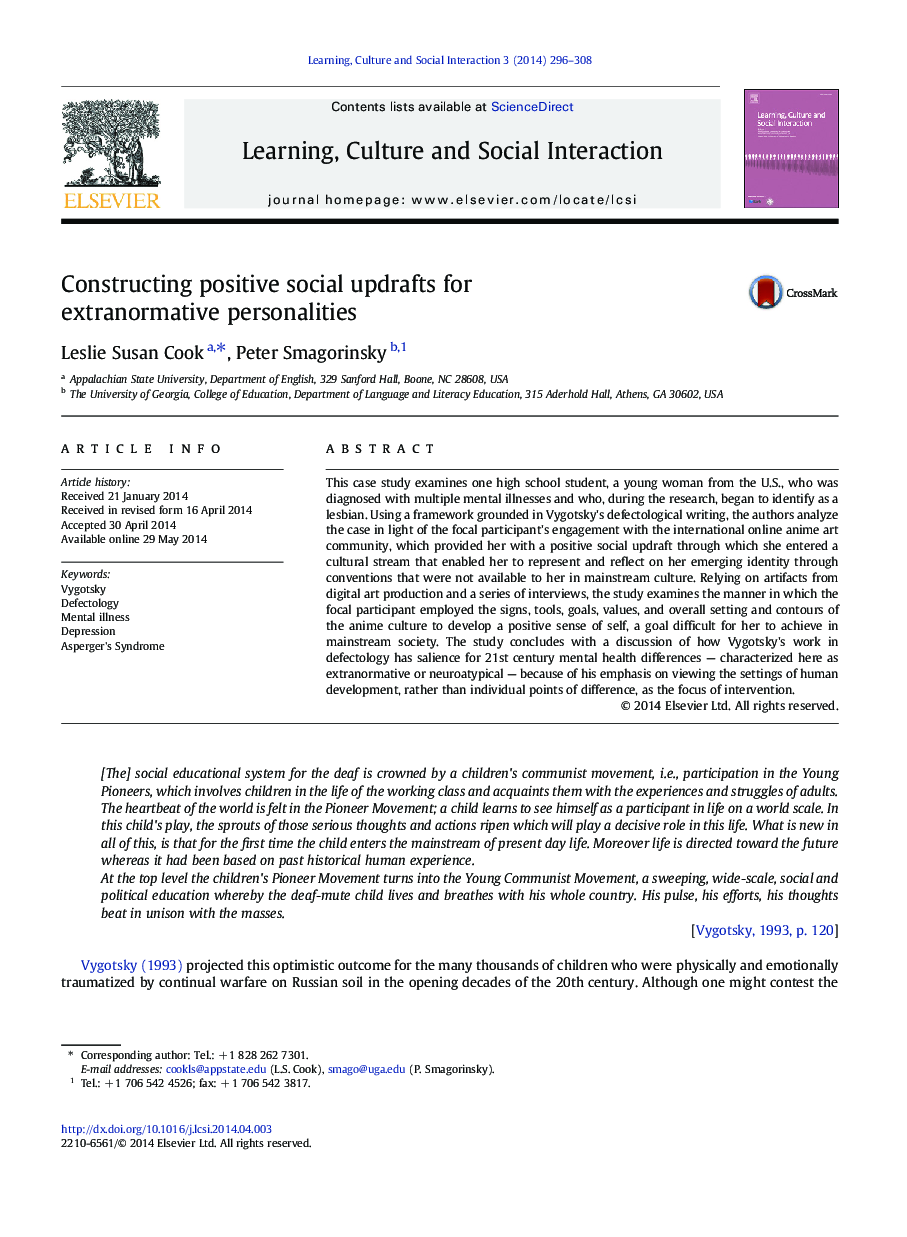| Article ID | Journal | Published Year | Pages | File Type |
|---|---|---|---|---|
| 364364 | Learning, Culture and Social Interaction | 2014 | 13 Pages |
This case study examines one high school student, a young woman from the U.S., who was diagnosed with multiple mental illnesses and who, during the research, began to identify as a lesbian. Using a framework grounded in Vygotsky's defectological writing, the authors analyze the case in light of the focal participant's engagement with the international online anime art community, which provided her with a positive social updraft through which she entered a cultural stream that enabled her to represent and reflect on her emerging identity through conventions that were not available to her in mainstream culture. Relying on artifacts from digital art production and a series of interviews, the study examines the manner in which the focal participant employed the signs, tools, goals, values, and overall setting and contours of the anime culture to develop a positive sense of self, a goal difficult for her to achieve in mainstream society. The study concludes with a discussion of how Vygotsky's work in defectology has salience for 21st century mental health differences — characterized here as extranormative or neuroatypical — because of his emphasis on viewing the settings of human development, rather than individual points of difference, as the focus of intervention.
